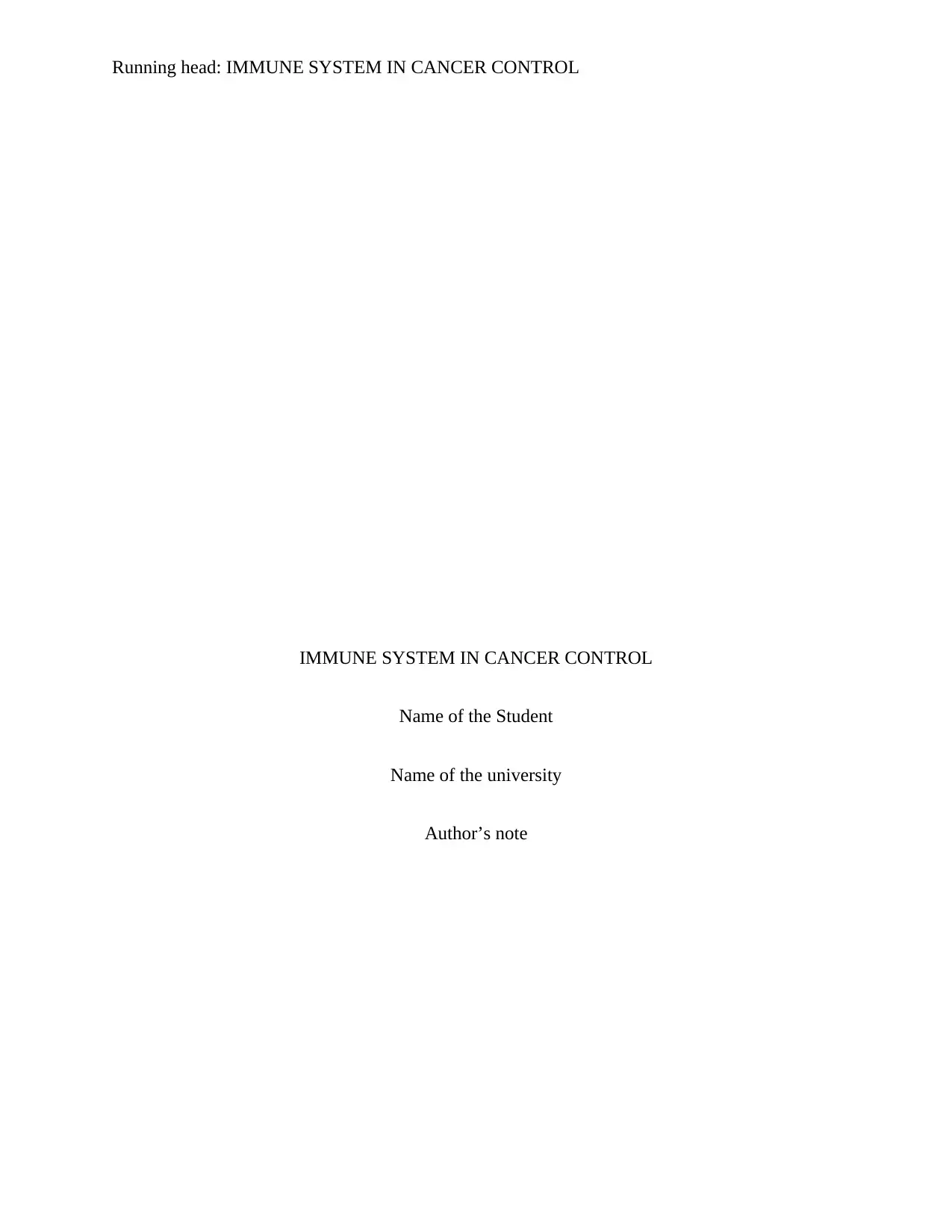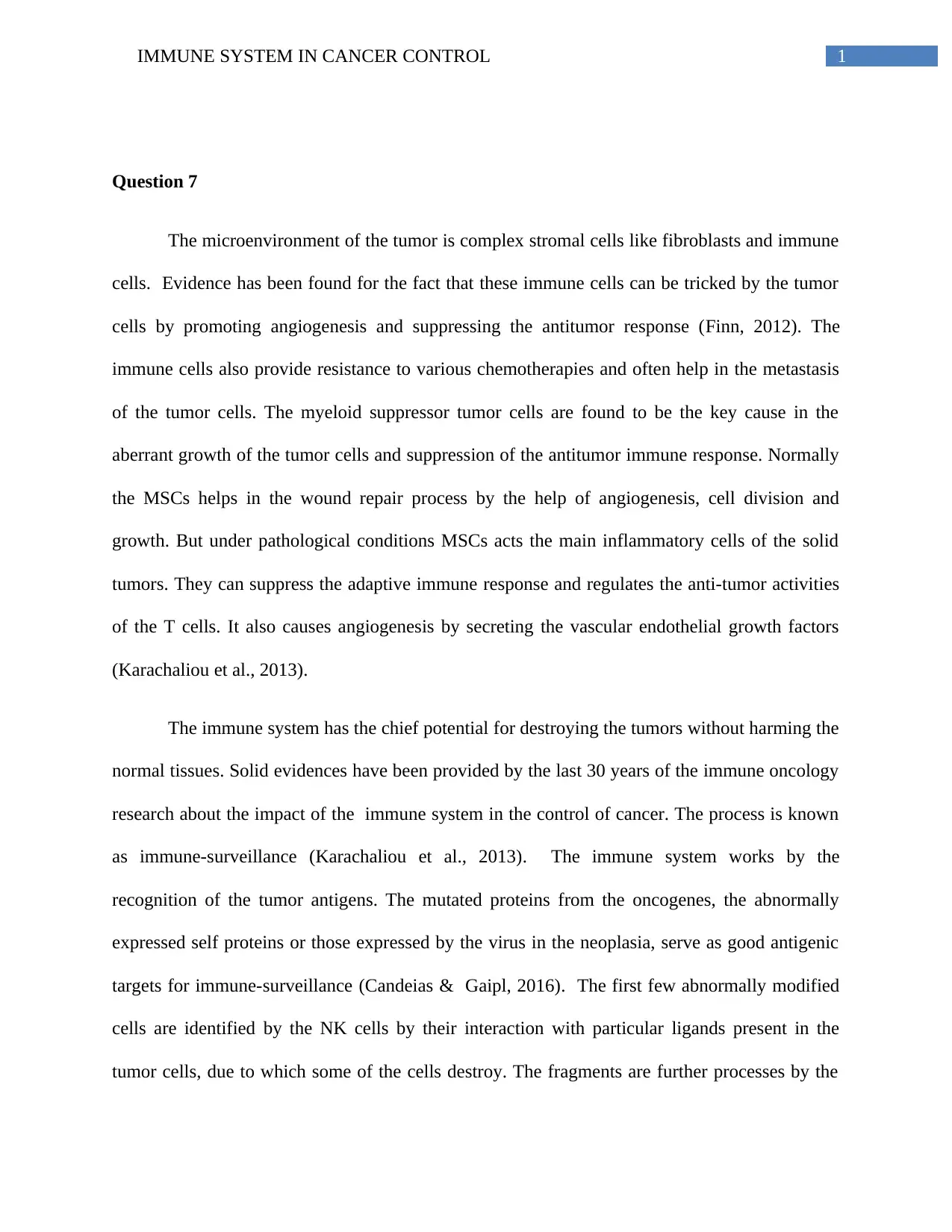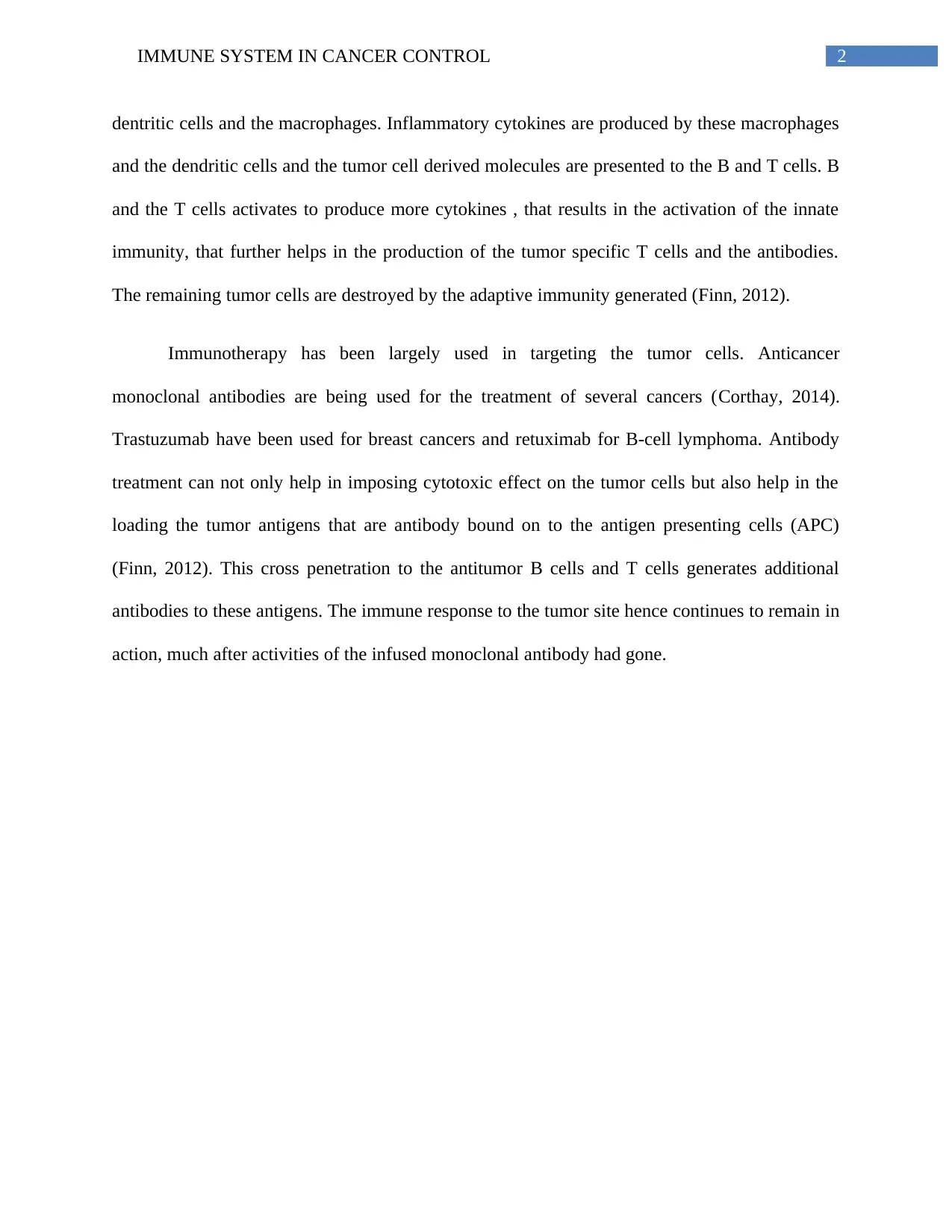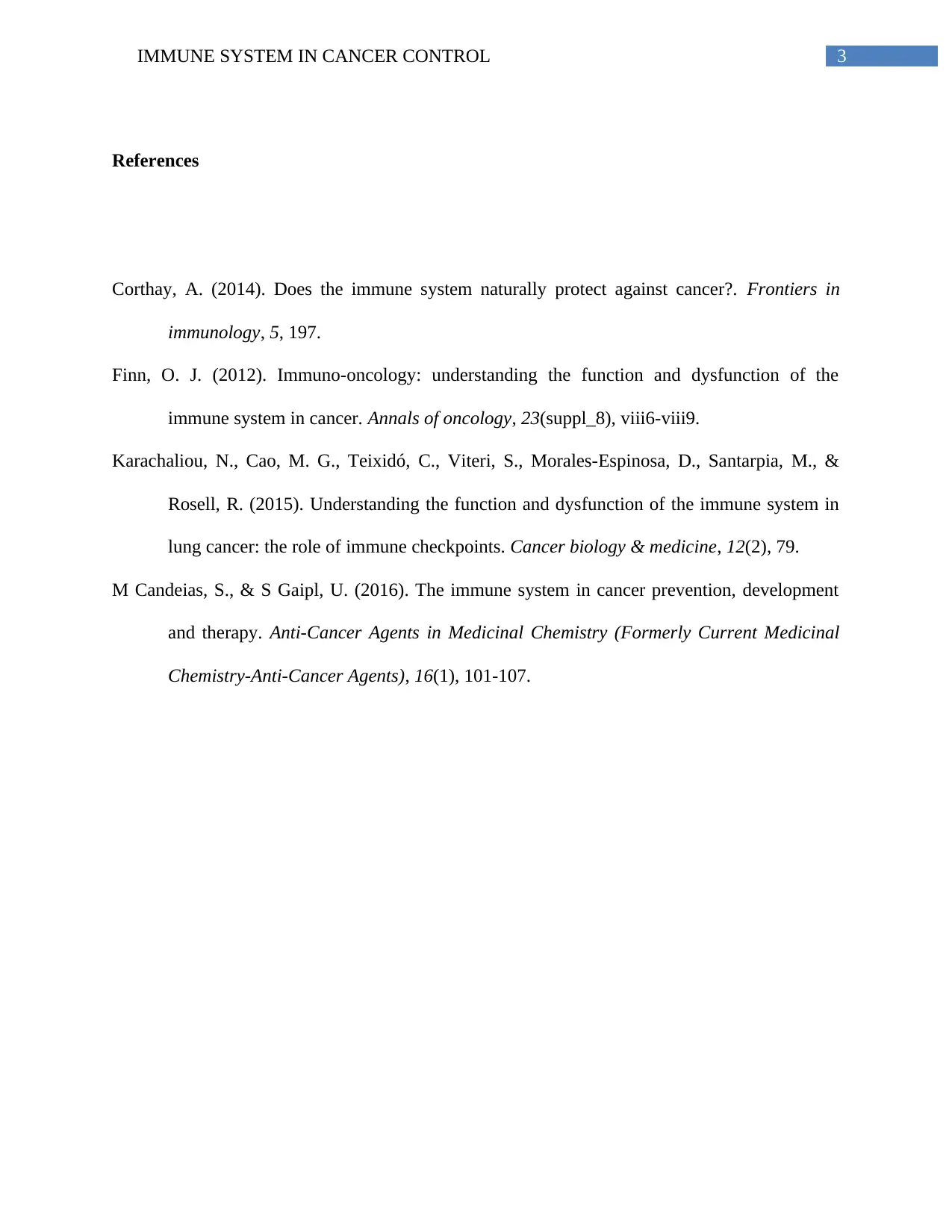Immune System in Cancer Control
VerifiedAdded on 2023/06/14
|4
|743
|226
AI Summary
The article discusses the complex microenvironment of tumors and how immune cells can be tricked by tumor cells. It also explains how the immune system works in recognizing tumor antigens and destroying tumor cells. The article also highlights the use of immunotherapy in targeting tumor cells.
Contribute Materials
Your contribution can guide someone’s learning journey. Share your
documents today.
1 out of 4
![[object Object]](/_next/static/media/star-bottom.7253800d.svg)









